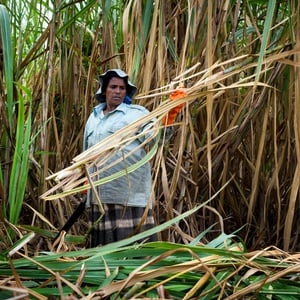
Cosatu and the industry want more time and more research before the introduction of the tax on sugary drinks – proposed to start on 1 April.
“It is impossible to argue with the health objectives [of the tax], but our concern is jobs,” Cosatu’s Matthew Parks told today's public hearing on the tax hosted by parliament’s finance and health committees.
“Treasury says 5 000 jobs might be lost, but the sugar industry alone says 5 800 jobs might be lost. We think the 72 000 [Beverage Association of SA] figure is alarmist. But even if it is 5 000, it is 5 000 too many,” said Parks.
All in good time
“But we can’t rush this thing. It is very tempting for government to balance the books, but don’t think this should be done in a hurry,” added Parks, who said the federation supported the tax money being used to “support sugar farmers to move to other products such as biofuels, and for the National Health Insurance”.
Gwarega Mongozhe, CEO of the Consumer Goods Council of SA (CGCSA), spoke against the “hasty implementation of the tax” as the “voluntary reduction in sugar content was already underway and that any changes to products meant labels and packaging also had to be changed”.
However, Carol Hendricks, a 60-year-old diabetic, whose mother died of stroke after complications from diabetes, said she strongly supported the tax.
“I am concerned that children from the age of 12 are getting type two diabetes. It is common for people to buy a two-litre cooldrink and finish it in one day. Diabetes is a silent killer. I support the tax,” said Hendricks, who has run a diabetics’ support group in Mitchells Plain for the past 17 years.
Misleading marketing
Meanwhile, the Healthy Living Alliance’s Tracey Malawana said that Coca Cola spent about ten times the budget of the Department of Health’s health promotion budget on “marketing unhealthy products”.
“Coke is being sued in US for misleading advertising. It is not an industry that cares about people. It is willing to make people sick for its own profits.”
Evan Blecher, from the University of Cape Town’s Economics of Tobacco Control Products, said that South Africa’s tax on tobacco had cut smoking by half, resulting in four million fewer people dying.
“That’s the size of Cape Town. I don’t recall any other country that has done this,” said Blecher.
He said beer was taxed according to its alcohol content, which had resulted in people moving to lighter beers, as well as manufacturers promoting lighter beers.
“This has resulted in 12 percent less alcohol being consumed in beer,” said Blecher.
He added that although it had been claimed that the tax was simply a revenue collecting exercise for Treasury, this was unlikely: “Why go to such lengths for R4-billion? This is an incredibly ineffective revenue tool. Treasury could just raise taxes on alcohol and tobacco by about 2% and raise same amount, so don’t think it’s just about revenue.”
Multiple benefits of sugar tax
The Health Department’s Lynn Moeng, said the tax on sugary drinks is “one part of multi-pronged approach”.
“The benefits of the sugar tax will not be realised immediately. Our children will benefit. We have identified all the causal factors of obesity and we want to implement everything we can simultaneously.”
Moeng added that although industry spoke about job losses, “it has not factored in the increase in sales of healthier products”.
Meanwhile’s Treasury Mpho Lekgetho said Treasury had received 144 written submissions on the sugary drinks tax.
“Next week, the Finance Minister will make an announcement about the tax [in the Budget speech], and all these submissions will be taken into account. The tax not a silver bullet, but one we need to strategy to implement.”
However, Finance Committee chairperson Yunus Carrim said “there is overwhelming evidence of harmful effects of sugar, but we need to determine what effect the sugar-sweetened beverage tax will play.
“We need to find balance. The discussion is too polarised. Treasury must engage with people more. We are not going to entertain Bill until they have engaged more. There is the possibility of an incremental approach rather than plunging into one option or another.”
Read More:
South Africans consume alarming amounts of sugar and carbs
Shocking: See what accounts for more than a third of your daily sugar intake
South Africans have a sweet tooth so shouldn’t say no to a sugar tax




 Publications
Publications
 Partners
Partners














